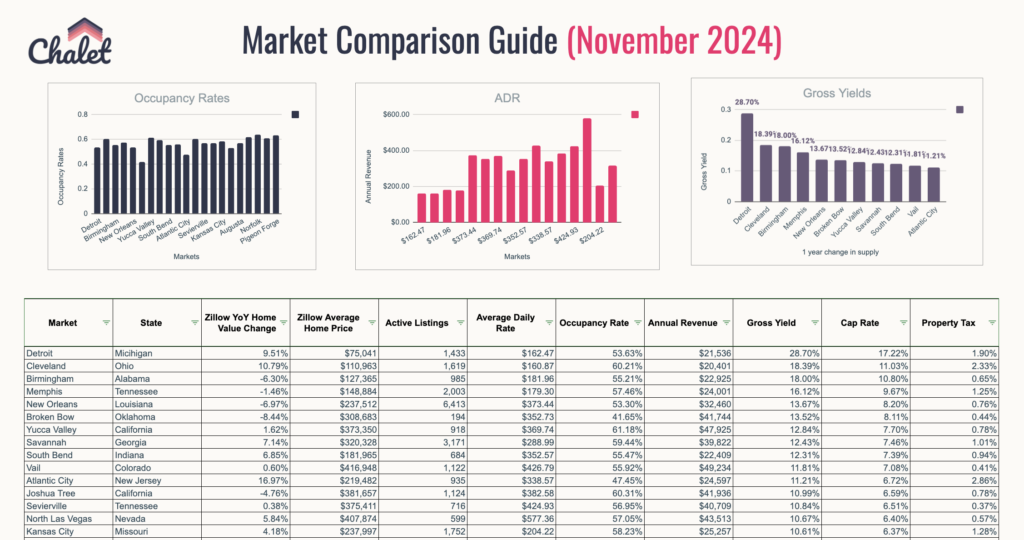Flagstaff, Arizona, with its proximity to natural wonders like the Grand Canyon and its own vibrant cultural and outdoor scene, is a hotspot for tourists seeking both adventure and relaxation.
For property owners, Airbnb and other short-term rentals (STRs) offer a promising revenue stream. However, successfully managing an STR in Flagstaff requires a clear understanding of the local regulations. This guide is designed to help Airbnb hosts navigate these regulations effectively, ensuring legal compliance and a successful rental operation.
Overview of Short-Term Rental Regulations in Flagstaff
Flagstaff has implemented regulations that govern the operation of short-term rentals to balance the benefits of tourism with the needs and quality of life of local residents. Here are the key regulatory aspects that Airbnb hosts need to consider:
Licensing and Registration
- No Special Licensing Required: Unlike many other cities, Flagstaff does not require a special license for operating an STR. However, all STRs must be registered with the city to ensure they meet zoning and safety requirements.
- Compliance with Zoning Laws: It’s crucial for hosts to ensure that their property complies with local zoning laws, which may restrict the use of properties in certain areas for short-term rentals.
Tax Compliance
Airbnb hosts in Flagstaff are required to collect and remit state, county, and city taxes on rental income. This includes the Arizona transaction privilege tax and a Flagstaff bed tax. Hosts can opt to manage tax collection themselves or use Airbnb’s automated system, which collects and remits taxes on hosts’ behalf.
Safety and Health Standards
- Health and Safety Inspections: While the city does not mandate regular inspections, properties used as STRs must adhere to basic health and safety standards. This includes having working smoke and carbon monoxide detectors, fire extinguishers, and ensuring that all electrical and plumbing systems are up to code.
- Insurance Requirements: While not mandated by the city, it is highly recommended that hosts obtain adequate insurance to cover liabilities associated with short-term rentals.
Top 200 Airbnb Rental Markets

Instantly compare top 200 short-term (Airbnb) rental markets in the US
Neighborhood Compliance
- Noise Ordinances: To maintain neighborhood peace, Flagstaff enforces noise ordinances. STR hosts need to ensure their guests are aware of and comply with these regulations to avoid disturbances and potential fines.
- Parking Regulations: Adequate parking must be provided based on the size of the rental property. Hosts should ensure that the rental use does not impact neighborhood parking availability.
- Trash and Debris: Hosts are responsible for the proper disposal of all trash and maintaining the property in a clean, orderly state to not detract from neighborhood aesthetics.
Steps to Compliance
For a smooth and compliant operation of your Airbnb in Flagstaff, follow these guidelines:
- Register Your Property: Contact the City of Flagstaff to register your property as an STR, ensuring you meet all local zoning requirements.
- Set Up Tax Collection: Register with the Arizona Department of Revenue to collect and remit necessary taxes. If preferred, utilize Airbnb’s tax collection services.
- Prepare Your Property: Equip your property with necessary safety features and ensure it meets all health and safety standards prescribed by local regulations.
- Establish Clear House Rules: Implement and communicate clear house rules concerning noise, parking, and trash disposal to your guests.
- Stay Informed: Regulations may evolve, so staying informed about any changes in STR regulations in Flagstaff is crucial. Regularly check the city’s official website for updates.
Resources for Airbnb Hosts in Flagstaff
- City of Flagstaff Official Website: Provides information on STR registration and local regulations.
- Arizona Department of Revenue: Offers guidance on tax registration and filing for STRs.
- Local Host Networks: Engaging with local STR networks or forums can provide additional support and insights from other hosts.
By understanding and adhering to these regulations, Airbnb hosts in Flagstaff can enjoy the benefits of STR operations while contributing positively to the community and ensuring a pleasant experience for guests. Whether starting out or optimizing an existing rental, this guide serves as a valuable resource for navigating the complexities of STR laws in Flagstaff, Arizona.

